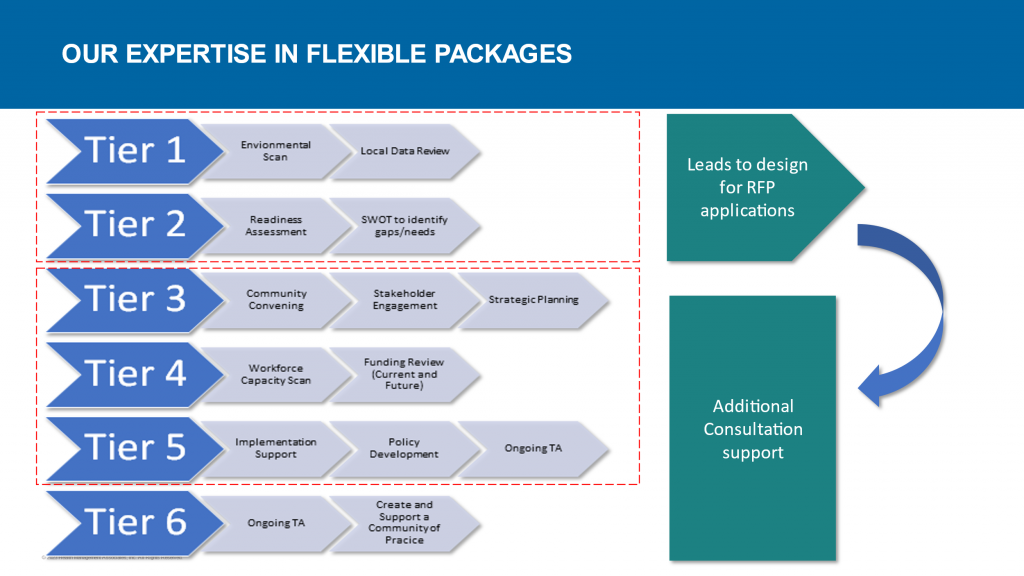Join us for a webinar that examines three projects that demonstrate how HMA has partnered with states and counties to address opioid use disorder with an equity focus. HMA experts will be joined by representatives from partner organizations to discuss their efforts to reduce disparities, which have been trending upward nationally, in opioid use disorder prevalence and overdose deaths—whether it be in brown and black communities or with pregnant and parenting people.
Learning objectives:
- Learn how states can implement strategies to engage non-traditional partners to address equity.
- Understand why partnering with community organizations and community leaders is critical to addressing inequities in substance use disorder (SUD).
- Discover how HMA can support states, counties, and municipalities in these efforts.
Speakers:
- Paul Fleissner, Managing Principal, HMA
- Amanda White Kanaley, Senior Consultant, HMA
- Charles Robbins, Principal, HMA
- George Lewis, CEO, Motivational Consulting, Inc.
- Minsun Park Meeker, MPP, Assistant Executive Director, Los Angeles County Office of Child Protection
- Brent Waninger, M.Ed., Director of Executive Programs, Grants Administration, and the Overdose Response Center, Delaware Division of Substance Abuse and Mental Health
- Rev. Dr. Ronald W. Whitaker, II, Senior Pastor, Mother African Union Church

